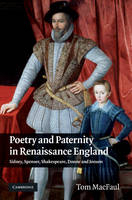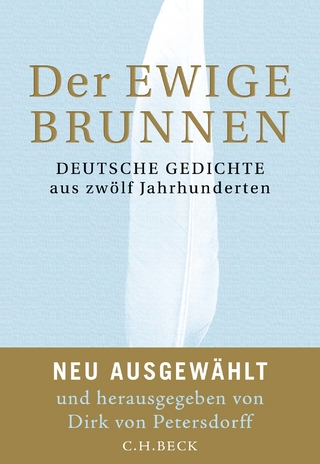
Poetry and Paternity in Renaissance England
Sidney, Spenser, Shakespeare, Donne and Jonson
Seiten
2010
Cambridge University Press (Verlag)
978-0-521-19110-4 (ISBN)
Cambridge University Press (Verlag)
978-0-521-19110-4 (ISBN)
The Renaissance was a high-point of English love poetry. This book considers the various anxieties about sex and fatherhood that informed and shaped the major poems of the time, providing social context for the works of such important and popular writers as Shakespeare, Donne and Spenser.
Becoming a father was the main way that an individual in the English Renaissance could be treated as a full member of the community. Yet patriarchal identity was by no means as secure as is often assumed: when poets invoke the idea of paternity in love poetry and other forms, they are therefore invoking all the anxieties that a culture with contradictory notions of sexuality imposed. This study takes these anxieties seriously, arguing that writers such as Sidney and Spenser deployed images of childbirth to harmonize public and private spheres, to develop a full sense of selfhood in their verse, and even to come to new accommodations between the sexes. Shakespeare, Donne and Jonson, in turn, saw the appeal of the older poets' aims, but resisted their more radical implications. The result is a fiercely personal yet publicly-committed poetry that wouldn't be seen again until the time of the Romantics.
Becoming a father was the main way that an individual in the English Renaissance could be treated as a full member of the community. Yet patriarchal identity was by no means as secure as is often assumed: when poets invoke the idea of paternity in love poetry and other forms, they are therefore invoking all the anxieties that a culture with contradictory notions of sexuality imposed. This study takes these anxieties seriously, arguing that writers such as Sidney and Spenser deployed images of childbirth to harmonize public and private spheres, to develop a full sense of selfhood in their verse, and even to come to new accommodations between the sexes. Shakespeare, Donne and Jonson, in turn, saw the appeal of the older poets' aims, but resisted their more radical implications. The result is a fiercely personal yet publicly-committed poetry that wouldn't be seen again until the time of the Romantics.
Tom MacFaul is Lecturer in English at Merton College, University of Oxford. He is the author of Male Friendship in Shakespeare and his Contemporaries (Cambridge, 2007) and many articles on Renaissance poetry and drama.
1. Presumptive fathers; 2. Uncertain paternity: the indifferent ideology of patriarchy; 3. The childish love of Philip Sidney and Fulke Greville; 4. Spenser's timely fruit: generation in The Faerie Queene; 5. 'We desire increase': Shakespeare's non-dramatic poetry; 6. John Donne's rhetorical contraception; 7. 'To propagate their names': Ben Jonson as poetic godfather; Coda: sons.
| Verlagsort | Cambridge |
|---|---|
| Sprache | englisch |
| Maße | 162 x 235 mm |
| Gewicht | 600 g |
| Themenwelt | Literatur ► Lyrik / Dramatik ► Lyrik / Gedichte |
| Geisteswissenschaften ► Sprach- / Literaturwissenschaft ► Anglistik / Amerikanistik | |
| Geisteswissenschaften ► Sprach- / Literaturwissenschaft ► Literaturwissenschaft | |
| ISBN-10 | 0-521-19110-6 / 0521191106 |
| ISBN-13 | 978-0-521-19110-4 / 9780521191104 |
| Zustand | Neuware |
| Haben Sie eine Frage zum Produkt? |
Mehr entdecken
aus dem Bereich
aus dem Bereich
Deutsche Gedichte aus zwölf Jahrhunderten
Buch | Hardcover (2023)
C.H.Beck (Verlag)
28,00 €
Text, Übersetzung, Melodien, Kommentar
Buch | Softcover (2024)
De Gruyter (Verlag)
24,95 €


